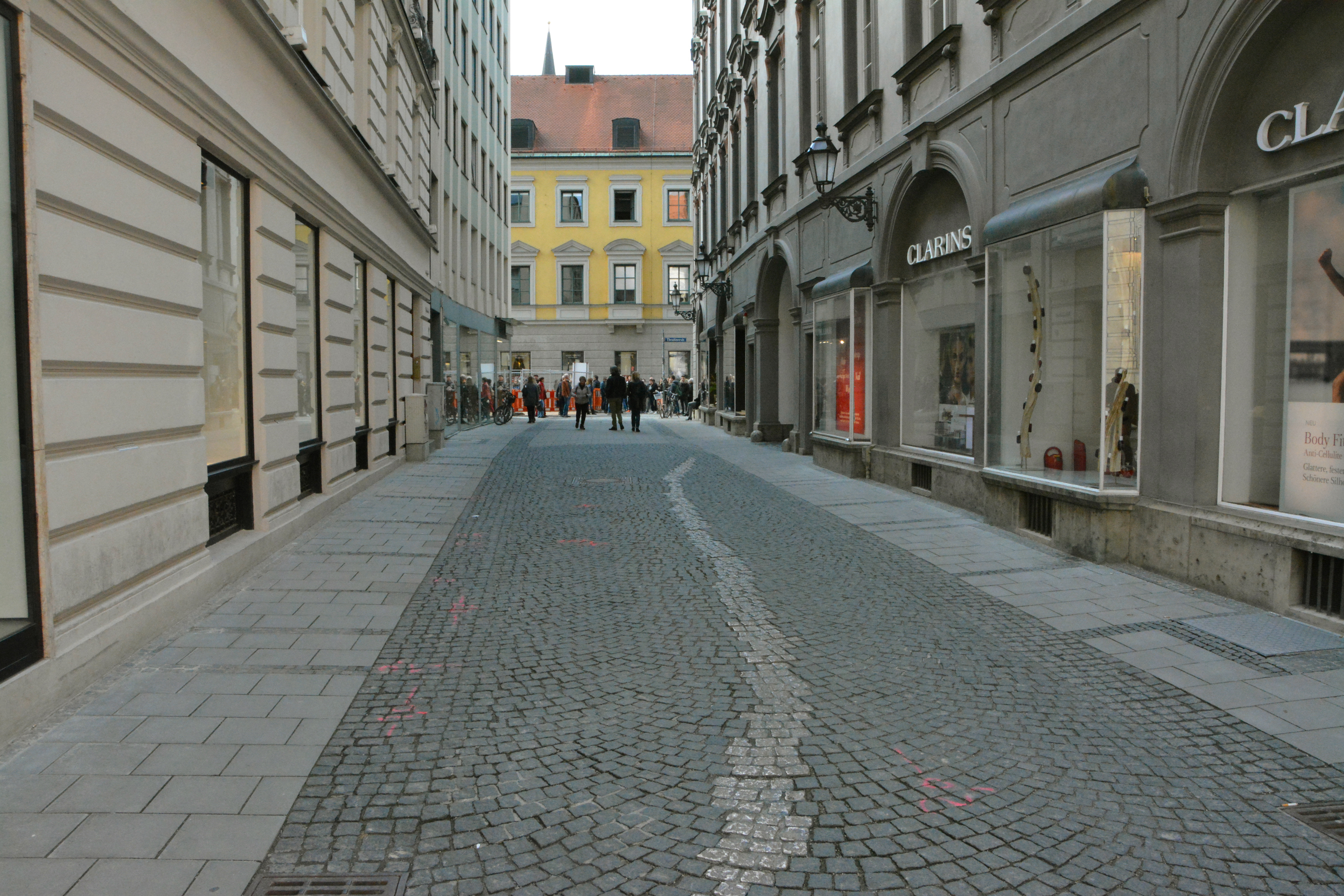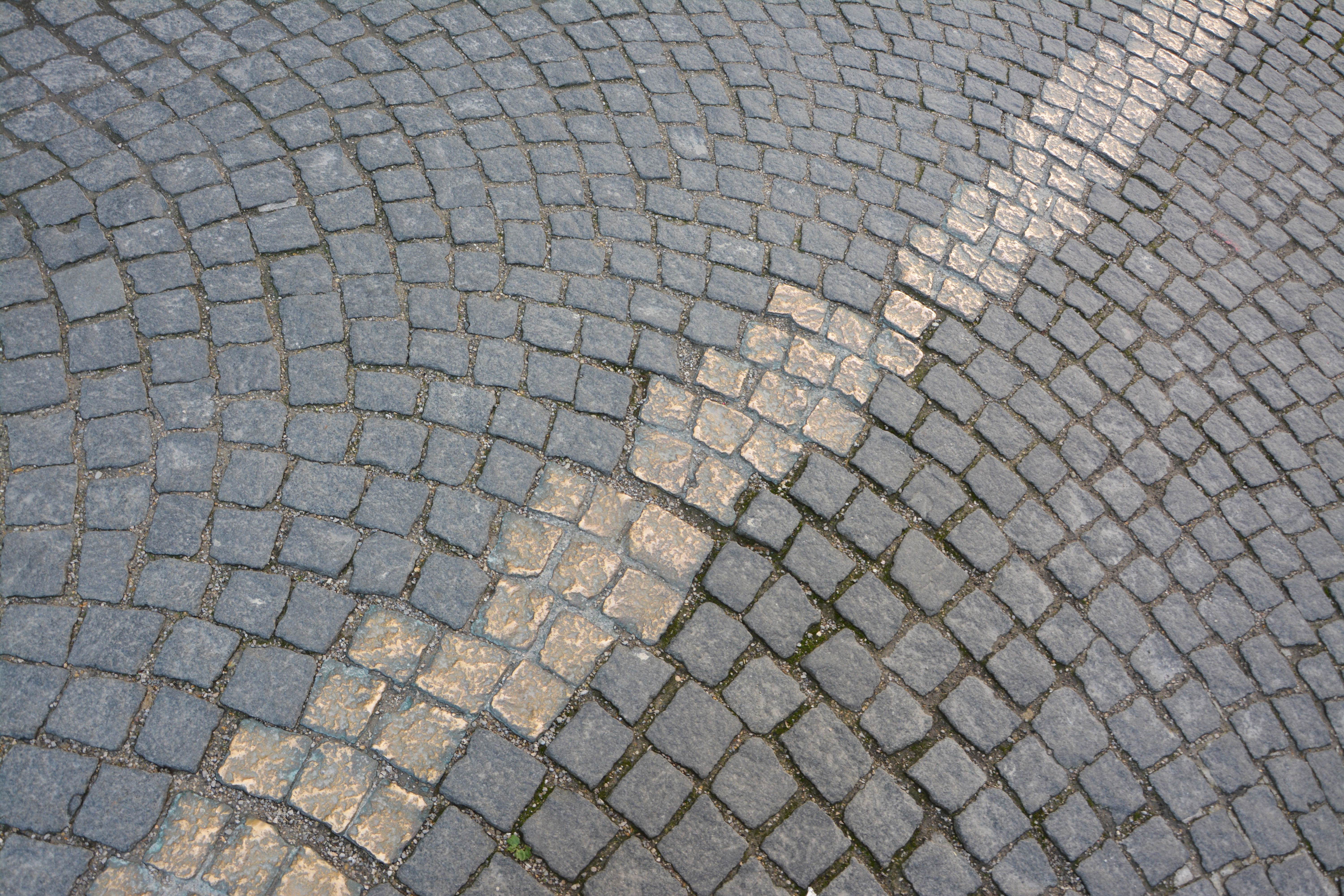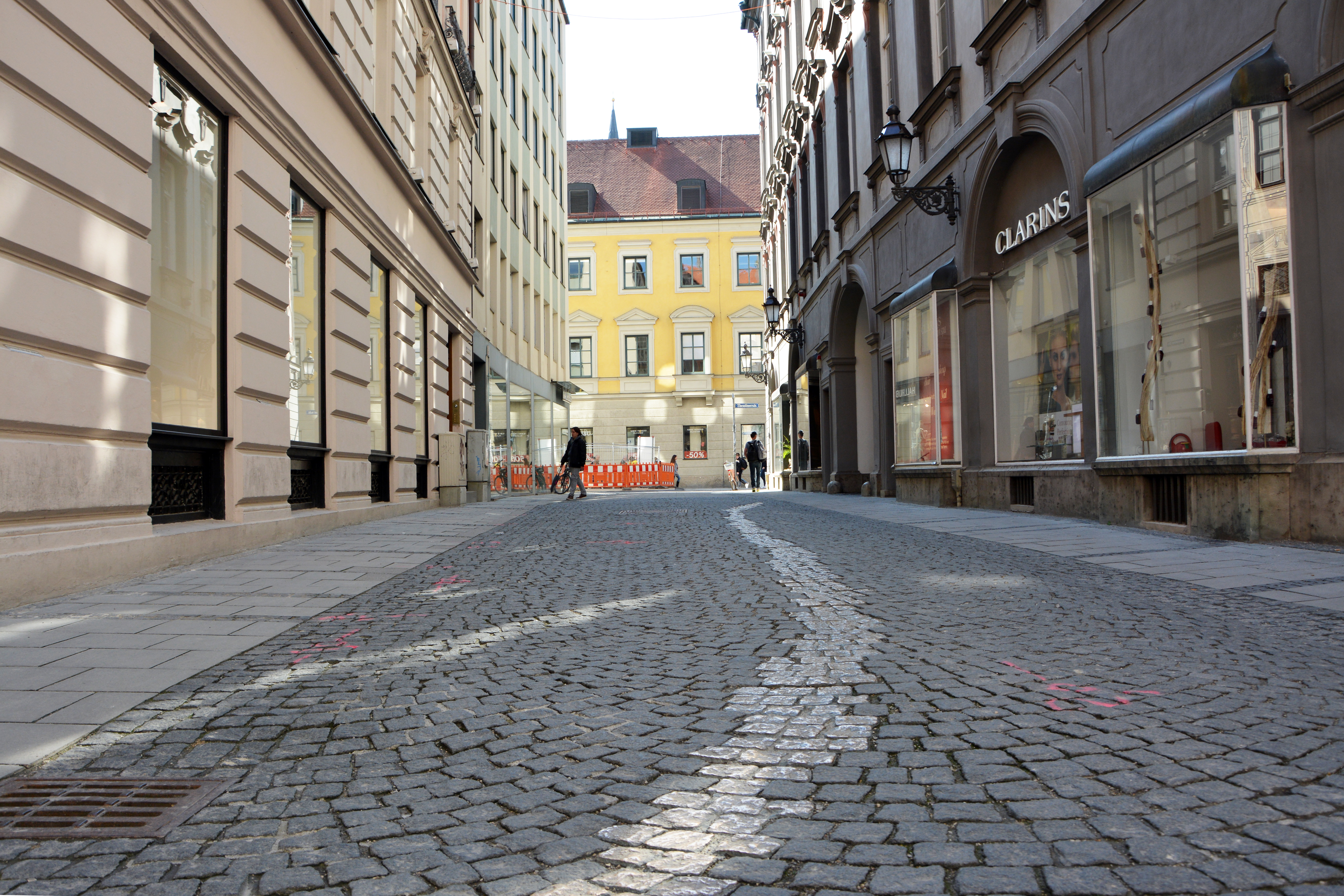The Golden Tree
Once upon a morning in the Viscardigasse
The Viscardigasse was quiet. A calm oasis in the middle of Munich, it seemed to even block out the noize of the two busy tourist streets it connected. A young man in his twenties appeared from the crowd and stepped into the street. He slid off his backpack and gently placed it against a wall. The man stretched his back while a soft cool breeze dried the sweaty spot where the pack had rubbed against his shirt. He ruffled through his curly hair as he looked at the golden trail that stretched out in front of him. It was small and without paying attention, one could step right over it.
On both sides of the small street were window displays. Above those, large ancient-looking windows adorned the stately Victorian houses which rose up high and blocked all direct sunlight. A gate in one of the buildings opened, and a large, expensive-looking car maneuvered its way out and into the Residenzstraße. The young man waited until the car passed and inspected the golden trail. It seemed small and insignificant for such an important message. He wondered if it was a coincidence that the street was so calm. A way of showing respect, giving extra meaning and atmosphere to the monument.
He opened his backpack and wriggled out a gold-painted pot and a small tree. The first he placed at the end of the trail while pushing down the earth inside. He took the tree and using a small shovel, he buried the roots of the plant deep in the earth. The young man secured a small cotton bag and pen to the pot, took a golden ribbon out of it and scribbled a few words down. He tied it to one of the tree branches and without looking back, he left.

A lonely tree
Time passed, people came and went. Most just passed by the little tree, giving it only a sideways glance, until a young man and a small boy entered the street. The boy pointed at the tree and pulled his father closer. The man, in his thirties with dark skin and small mustache, took a few moments to decipher the letters on the pot. He smiled, took a paper and ribbon from the bag and wrote something down. The man whispered softly to the boy and together they hung the ribbon on a branch.
A guide led a small group of tourists into the street. One of them, a middle-aged Asian woman, noticed the man and his child. Her curiosity awakened, she stepped closer, read the paper and immediately grabbed into the bag. She too jotted down a few words and added the paper with a golden ribbon to the tree. She stood still for a few seconds, her head down in respect and went back to the group. Their interest roused, the entire group approached the tree. One of them, a young woman with North African appearances, followed the example of her colleague and attached a ribbon to a branch.

Shadows of the past
The day passed by. More and more people noticed the tree and added a paper. All took a few minutes of silence and consideration. It was late in the afternoon and the setting sun threw a veil of darkness over the ally when two patrolling police officers noticed the tree. One of them grabbed the first paper the young man had added and read:
For all those who said or still are saying: 'no'.
The tree was now full of papers and ribbons, all with different handwriting.
For my mother, who said 'no'.
Chea
Cambodia
For our family, who said 'no'
Nizar & Aimar
Syria
For my sister, who said 'no'
Heba
Egypt
And many more cards from all over the world. Chile, Romania, Poland, Libya,… The two officers looked at each other, stepped back and kept silent for a few moments. Then they walked on, out of the street. Slowly it became dark in the Viscardigasse. The old-looking Victorian-style lanterns blinked on and threw a yellow light on the cobblestones. For a moment it seemed that the golden stones lighted up. One by one, their yellow light racing towards the golden tree, shining for those who said ‘no’.
